“I thought, How many people have I walked through this with? I'm the one who has seen many of them die,” she recalls. At first, her doctor believed she only had pre-cancerous cells, but a biopsy confirmed the worst. “As much as I could prepare, I was the most shocked person on the planet.”
Leaving the doctor's office, Major Chaulk stumbled to her car, fighting back tears as she thought of her sister, Dolly, who had died from cancer years before. How will my family handle the news? she wondered.
For years, Major Chaulk had counselled others through health crises. Now, she felt God asking her, “Are you willing to trust me with your health?”
“I said, 'My health? I trust you with my life,' ” she says. “That never left me.”
Living Life
When she was first commissioned, Major Chaulk, who is now social-services co-ordinator, as well as central health chaplain, in Grand Falls-Windsor, N.L., never imagined she would go into hospital chaplaincy.
“I told my divisional commander, 'I don't like hospital smells and I hate needles,' ” she laughs. “But something in my being said, this is the place I need to go.”
Born and raised in Newfoundland and Labrador, Major Chaulk had her first full-time chaplaincy appointment in Toronto, but was transferred to St. John's, N.L., in 1990. As it turned out, she came home at just the right time.
“Dolly worked in the hospital and she knew something wasn't right, so she booked an appointment with a specialist.” Major Chaulk waited outside at the hospital while Dolly got the results. “When I walked around the corner, I saw the tears and thought, Oh gosh, because my sister was very stoic.”
Dolly's cancer was everywhere—even her bones and brain.
“It was the first time I had ever seen her cry,” Major Chaulk recalls. “But then she said, 'Come on,' and when I asked her where we were going, she said, 'Shopping! I've got to get Christmas gifts for all of my family.'
“That was her—her philosophy was 'I live until I die.' ”
Major Chaulk had counselled others through health crises. Now, she felt God asking her, “Are you willing to trust me?”
For the next two years, Major Chaulk did her best to help Dolly live her life. “I took her anywhere and everywhere she wanted to go. I saw more of Newfoundland in two years than I did growing up,” she smiles.
When Dolly passed away, a sense of calm was with Major Chaulk and her family in that hospital room. “To be with somebody while they're taking their last breath is a great privilege because you feel like you've seen them through a journey.”
Unexpected Healing
Being with Dolly as she faced death taught Major Chaulk more than she could ever learn in classes about end-of-life care, and it helped her better understand the needs of the patients she would encounter throughout her ministry.
It was during her appointment in Winnipeg at the general hospital that she met Bill, a man with advanced cancer. “I told him who I was, and asked if there was anything I could do for him,” she says.
“I can be someone who's here when you're bored. I can be someone who gets you a coffee. And I'm someone who would like to hear your story,” Major Chaulk told him.
“I'm not very religious,” he replied.
“It's OK, I don't mind that at all.”
As Major Chaulk got to know him, she found out that he had a three-year-old daughter and a pregnant wife.
“Bill and I used to tell stories and joke,” she recalls. “And then one day he said to me, 'Vi, my biggest regret is I will not see this baby.' And that haunted me.”
Major Chaulk went down to the ultrasound department and explained the situation. Then she went to Bill's wife and told her what she had in mind.
“They did the ultrasound and Bill saw the baby,” she says. “When I came back to his room a couple of hours later, the man was beaming.”
“What happened to you?” Major Chaulk asked.
“Look,” he said as he pulled up the ultrasound film. “She's got my nose.”
“Healing is not always getting better,” Major Chaulk explains. “Healing can be, 'I feel good at this moment because this happened,' 'I'm not so afraid' or 'I'm more at peace now because of this experience.'
“That day, this man experienced healing.”
Practical Faith
After her appointment in St. John's, Major Chaulk went to Halifax where she ministered in a children's hospital.
“Most of my work was with babies, and that probably was the most difficult experience,” she says, “because when babies die, it never seems fair.”
While there, Major Chaulk's faith was seriously tested after a family she was supporting lost one of their twins.
“That little boy had 10 surgeries in 10 months,” she says. “The family called me in before every surgery and I prayed with him.
“When he died after his last surgery, I was so broken-hearted. When I walked into the room to be with the family, his mother was rocking him, and she would not leave the hospital until she put him in my arms. I held him and rocked him as they walked away. They looked at me and I looked at them, and then they left.”
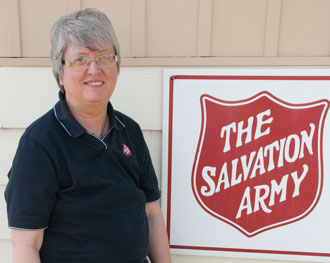 “To me, faith has to be practical,” Major Chaulk says. “If you want a sermon, go to church, but if you want someone who really cares about you and has a great love for God, I'm your person”
“To me, faith has to be practical,” Major Chaulk says. “If you want a sermon, go to church, but if you want someone who really cares about you and has a great love for God, I'm your person”
Overcome with anger, Major Chaulk found herself at a crossroads in her faith.
“I went into the chapel and exploded at God—I let him have every bit,” she says. “And when I finished, I sat in a chair, and this voice spoke to my heart: 'Violet, my ways are not your ways.'
“I said, 'God, you're right. I don't understand your ways, but you put me here to represent you and show your compassion to people. And I'll do the best that I can.' It was a real moment of surrender for me. I said, 'I will love these people and support them, but when I get to heaven, I really want this to make sense.' ”
While in Halifax, Major Chaulk started a support group at the hospital for people who had lost a baby. At Christmastime, she got gold-plated booties with stones that represented the birthdate of each child, and put the ornaments on a tree. “I told the parents, 'Christmas will be rough for you, so let's do something to celebrate your child,' ” Major Chaulk says.
“To me, faith has to be practical,” she adds. “I used to tell people that if you want a sermon, go to church, but if you want someone who really cares about you and has a great love for God, I'm your person.”
Mirror Image
Though Major Chaulk was diagnosed with cancer, she was fortunate that the disease was well contained. Still, given her condition and family history, a double mastectomy was her best option.
The surgery was a success, but when the bandages came off, Major Chaulk was afraid to look. A part of her was missing. “When I looked in the mirror, I felt ugly,” she remembers.
But after she closed her shirt, she had an epiphany. “I realized that God brought me through this, and that every experience I've had in life has prepared me for something else.”
Ten minutes later, she looked in the mirror again.
“Just like that, I switched,” she recalls. “I said, 'I don't feel ugly at all. I feel alive. I'm going to enjoy my life and support other people. And I will not be afraid to look at myself because this is who I am. My breasts will not define me.' ”
Since then, Major Chaulk has had many opportunities to meet and minister to people with cancer. “The minute they find out that I had a mastectomy, we have common ground,” she says. “I may not have had chemo, but I know what it means to be afraid. I know what it is to struggle in faith, and I know what it is to embrace my beliefs. I know not to just believe in God when the weather is good.”
Being Present
Even after years in hospitals, and her own experience with cancer, Major Chaulk still considers health chaplaincy her niche.
“I've never become hardened and I've never stopped caring,” she says. “Every hospital has a story and every place I've ever worked enriched my life.”
One of the most important lessons she learned came early, at her first chaplaincy appointment in Toronto.
“I was visiting a man who did not like having tea in a Styrofoam cup. He wanted a mug,” she says. “I couldn't make his pain better, but I could buy him a mug. And the greatest moments we had were me sitting on the bed, with him and his cup of tea.
“Every now and then, he would take my hand and squeeze it. That's when I realized that being present with people is far more important than giving advice.”
She encourages family and friends to journey with those facing serious illness, to pay attention to their needs and help them make the most of their time.
“And to people who are going through it themselves: live. Don't let any illness define you,” she adds. “Your life is not over until it's over.”




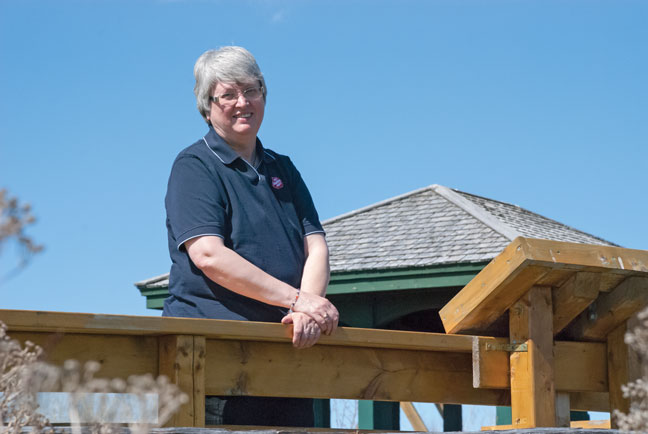
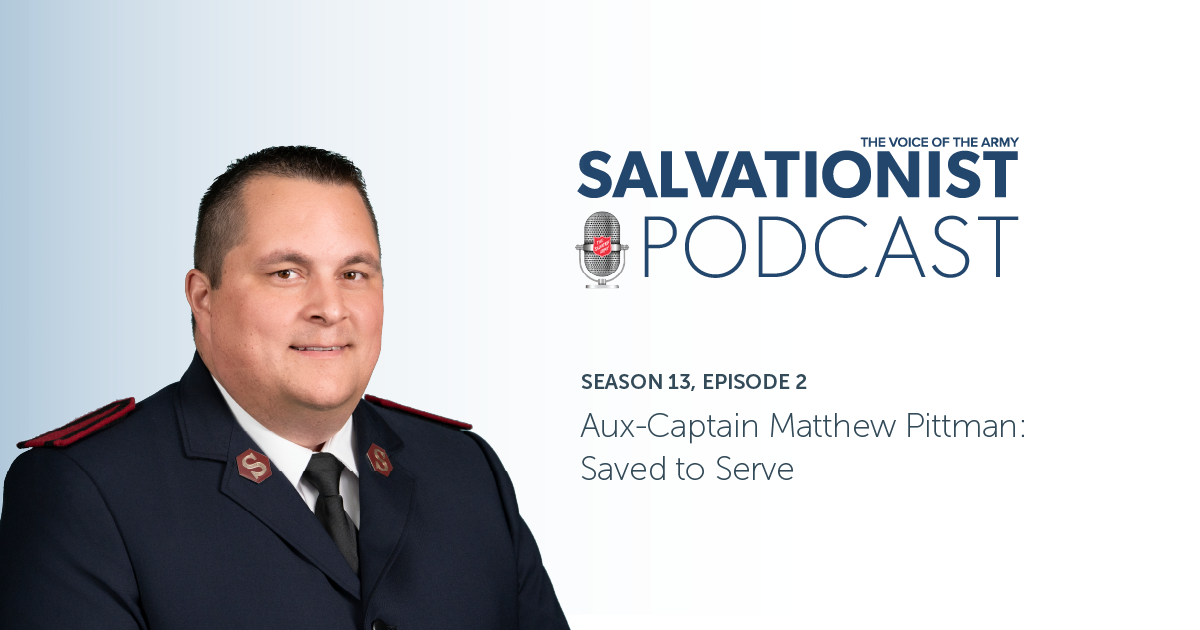
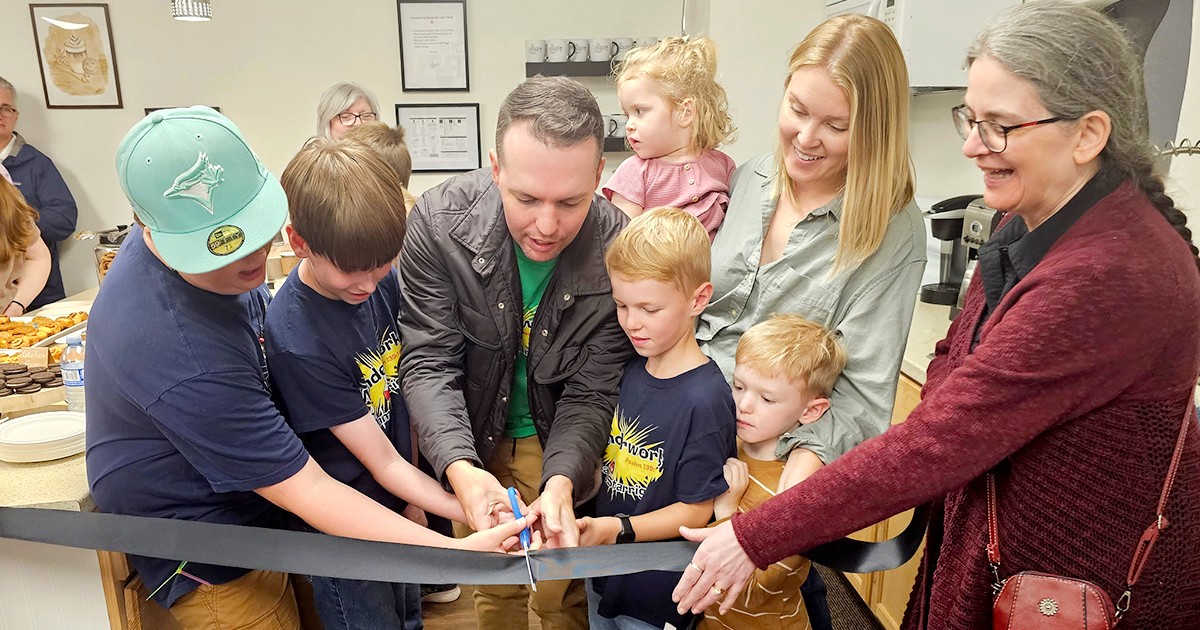
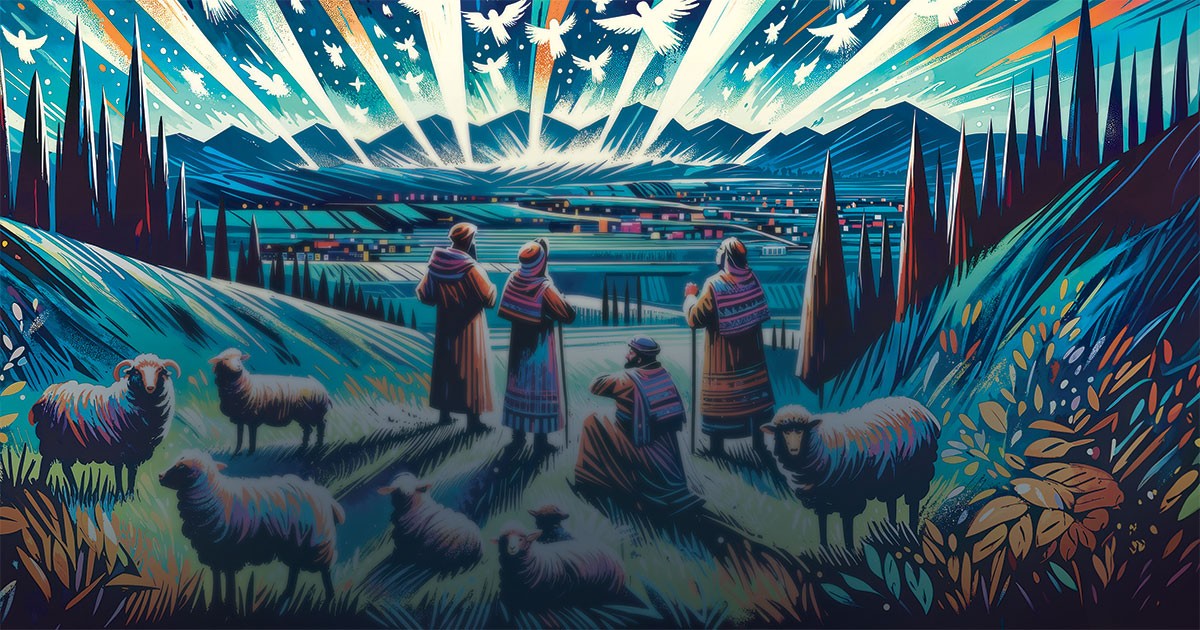


Comment
On Saturday, June 2, 2018, Greg kelly said:
On Wednesday, March 30, 2016, Betty Kozma said:
On Tuesday, March 29, 2016, Brenda Callen said:
On Tuesday, March 29, 2016, Daphne Brooking said:
I can remember your saying back then " Ok, Carry On " in your NL voice . lol So happy you are caring on ! Hugs
On Monday, March 28, 2016, Sandra Mouland said:
with loved ones a few times I truly feel that I can help others who are going through Trials and sadness of their own, being there for them , a kind word and even a prayer gives me satisfaction in knowing that maybe a kind word or deed was just what another person or persons needed.So proud of the work you do and may God continue to richly Bless You as you continue to do his will.......Sandra Mouland
On Sunday, March 29, 2015, Patricia Mitrevski said:
On Sunday, March 29, 2015, Melva Pilgrim said:
I like the way you spoke to her son and daughter and how you spoke peace and comfort at a difficult time!
Your story has also touched my heart with the many lives you have touched over the years.
On Saturday, March 28, 2015, Alicia Peltier said:
Leave a Comment